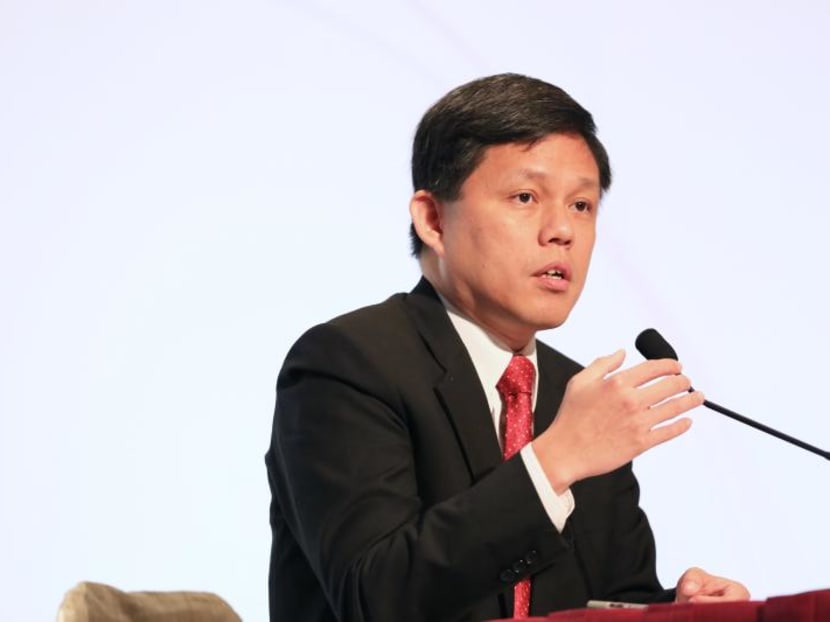Asean at inflexion point, needs to redefine itself as market for ideas: Chan Chun Sing
SINGAPORE — With the rise in unilateralism and protectionism, the Association of South-east Asian Nations (Asean) will need to innovate and create, redefining itself as a market for ideas in addition to a production base for goods, said Trade and Industry Minister Chan Chun Sing on Monday (May 21).
SINGAPORE — With the rise in unilateralism and protectionism, the Association of South-east Asian Nations (Asean) will need to innovate and create, redefining itself as a market for ideas in addition to a production base for goods, said Trade and Industry Minister Chan Chun Sing on Monday (May 21).
The regional bloc also needs to ensure its economies are digitally connected and enabled, and continually update its trade architecture, Mr Chan said in his keynote address at the Business Times Leaders' Forum held at the Shangri-La hotel.
"Given the challenges, Asean must press on with regional economic integration, and strive to achieve a level of coherence and connectedness among us such that the world sees Asean as one market," he said.
Asean is at an inflexion point, said Mr Chan. The open and rules-based multilateral trading system, regional integration and economic co-operation that supported growth are now under increasing pressure.
While economic globalisation brought its benefits, the "uneven gains" that came with it have also been exploited. This has led to inward-looking sentiments gaining ground, challenging the relevance and value of international platforms such as Asean, said Mr Chan.
Such tensions between major economic players have also led to increased trade friction, which will have spillover effects, including on Asean, he said.
Urging Asean to take a collective stance, Mr Chan also called on it to redefine its value proposition to ensure its "continued centrality and relevance".
Asean may be an attractive market – it is the sixth largest economy in the world today – but there are still significant barriers to business, such as non-tariff barriers, an uneven investment landscape that lags behind many other emerging economies as well as the need for greater regulatory coherence in the services market.
Asean stayed resilient during the 2008 global financial as it pushed ahead with closer trade co-operation and economic integration after the 1997 Asian Financial Crisis and subsequent dot-com bubble burst. This shows how "weathering the storms together is far better than going it alone", said Mr Chan.
To maintain its competitiveness in the long-run and shift up the value chain, it will have to innovate to help member economies unlock new, scalable and sustainable means of growth, he said.
The member states cannot rely solely on domestic initiatives and need to partner one another to help foster a more robust innovation ecosystem, he said.
The impact of cross-border data flows on world Gross Domestic Product has surpassed that of the trade of global goods, he noted.
To support digital connectivity and create new growth sectors, Asean needs to address issues such as policies on data flows and localisation, intellectual property, cybersecurity and digital trade facilitation, he said.
"Bottom-line is, very few external parties will look at Asean individually as sufficiently attractive but collectively, we can be a very attractive destination for talent, ideas for markets, for external parties."
As the Asean chair this year, Singapore will work closely with the member states to deliver "tangible outcomes" for various initiatives, he said.
The next lap of economic integration is complex, and will require Asean to be even more united and creative in realising the benefits of closer economic integration and connection, said Mr Chan.
"For Singapore, this is an effort worth doing as one, and this is what Singapore is committed to do together with the rest of the Asean partners. Not only maintain our attractiveness as a location of choice for investment, trade and ideas, but it is also for us to extend our current advantages that are already apparent," he said.










